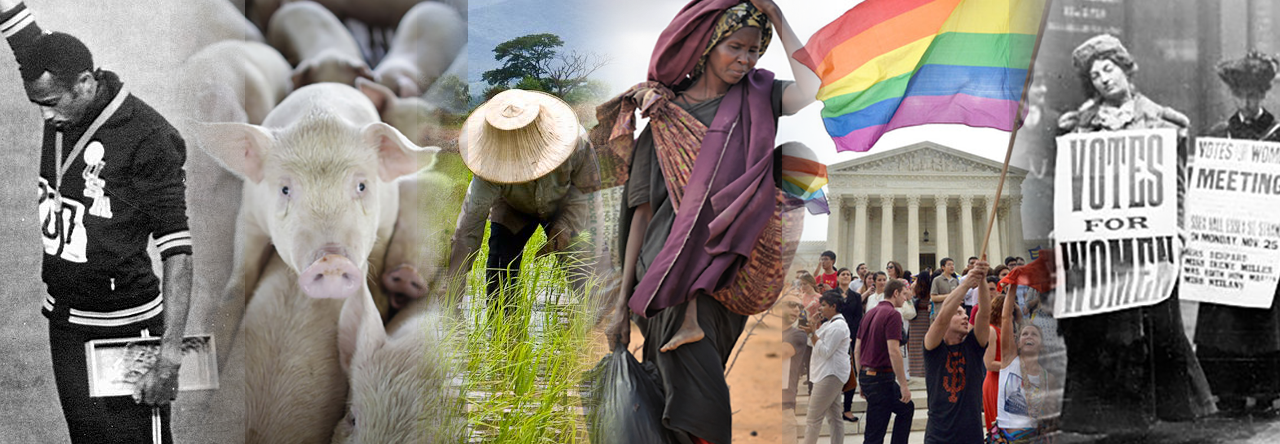In this post, Baldwin Wong discusses their recent article in Journal of Applied Philosophy on how religious schools could participate in civic education.
Religious schools, such as the parochial schools affiliated with Christian churches, the cheder of Judaism, and the madrasas of Islam, are common in many democratic societies. These schools are usually established by private religious groups. Their environments are filled with religious symbols and celebrations that impact students’ learning experience. The content of education involves religious classics, theology, and the teaching of the virtues valued in each faith.
Political liberals have long been worried about the partiality of religious schools. They argue that these schools should be carefully regulated. Otherwise, their partial education may create “ethically servile children” who have an ignorant antipathy toward alternative viewpoints. I agree that religious schools should be regulated, but, in my recent article, I further suggest that some of these schools should be encouraged and subsidized because they are crucial in addressing a problem that a government cannot single-handedly resolve—the reconciliation between faith and justice.
The war between God and Rawls
According to Rawls’s political liberalism, in a democratic society, students should be required to receive compulsory education in citizenship. They should learn to respect others by making political decisions and presenting their political opinions in terms of some shared values in democracy, such as basic liberties and political equality. Religious beliefs should be “bracketed” when students participate in politics, unless certain conditions are met.
However, imagine that, some Catholic students are taught to believe that, instead of restricting religion for the sake of politics, politics should be guided by religion. A government should not be neutral among different religions. Rather, it should be a confessional state that recognizes and promotes Catholicism as the true religion; civic ends should be subordinated to divine ones. In brief, the government wants to teach students to be political liberals, but religious schools may teach them to be Catholic integralists. While justice and faith pull religious citizens towards different directions, some citizens may choose faith and act unjustly in pursuing religious ends. This leads to political polarization, which threatens the stability of liberal democracy.
The strategy of regulation and its insufficiency
Political liberals have been aware of “the war between God and Rawls” that may be waged in the minds of religious citizens. To avoid this, they mainly advocate for a strategy of regulation, which means that laws and policies should be made to mark the boundaries of what religious schools can do. For example, Amy Gutmann believes that a government does not need to prohibit religious schools, on condition that these schools are willing to teach shared democratic values. Gordan Davis and Blain Neufeld further argue that religious schools should be mandated to include a citizenship curriculum that teaches students the value of civic respect. Political liberals, in general, are interested in what religious schools should not do, but they are mostly silent in what religious schools should do.
While I agree with the strategy of regulation, I believe that it is insufficient. The strategy can at most eliminate “bad” religious schools which teach students to be unreasonable. Nevertheless, even if “bad” religious schools are suppressed, it does not necessarily mean that students receive correct guidance. They may still wrongly interpret religious teachings in an illiberal way, and eventually believe that faith requires them to act unjustly. To avoid the clash between justice and faith, a more promising path is to channel the religious faith of students towards justice. This cannot be done within the citizenship curriculum, because its content is supposed to be secular. Thus, religious schools, can play a crucial role in reconciling the requirement of justice with the faith of their students.
The strategy of promotion
I suggest that the strategy of regulation should be supplemented with a strategy of promotion. The government should encourage religious schools to teach students to reconcile faith and justice by various policies, for example, tax exemptions, subsidies, national prizes, advertisements, allowing the free use of public land and facilities, etc. These policies aim to benefit “good” religious schools in the market and act as an incentive for other religious schools to follow suit.
These policies are usually regarded as policies proposed by perfectionists, such as Joseph Raz, Steven Wall, and Joseph Chan. This seems to compromise the liberal principle of neutrality, which is supposed to be the core commitment in political liberalism. How can a neutral state subsidize religious schools that are affiliated with a particular and comprehensive doctrine?
However, instead of neutrality, the primary concern of political liberalism should be public justification. So long as the decision to exercise political power or use tax money could be publicly justified to reasonable citizens, it is legitimate in a politically liberal framework. Accordingly, if the subsidies for religious schools could be justified by public reasons, such as stability, these policies are compatible with political liberalism. In fact, this combination between a political liberal framework and perfectionist policies is also recently proposed by some philosophers as a kind of political perfectionism, which means that a neutral state does not need to be silent in the question of religious faith and human flourishing.
In short, while the strategy of regulation discourages “bad” religious schools, the strategy of promotion encourages “good” religious schools. A democratic society could maintain robust stability when it is supported by religious schools representing a wide range of religions. These schools can effectively teach students from various religious groups to strive for a sustained commitment to justice.


Leave a Reply